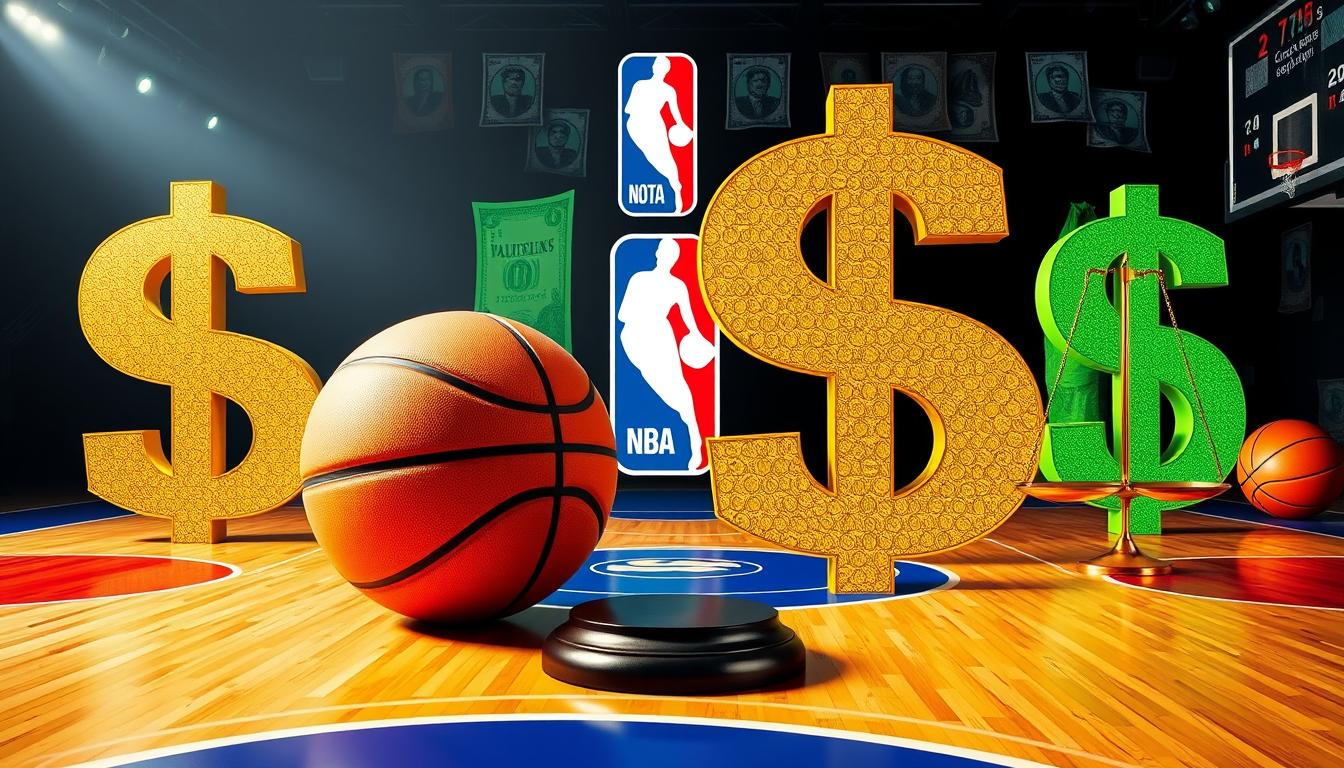Ever thought about if NBA fines can help with your taxes? The $10 million penalty against Robert Sarver of the Phoenix Suns is a big example. It’s about racist language and unfair treatment of women, making tax rules tricky.
Some say fines might be tax-deductible as business costs. But, the NBA’s rules are complex and tied to the Internal Revenue Code. Plus, the league plans to give fines to charities, making things even more interesting.
Key Takeaways
- The NBA imposes fines for player conduct, raising questions about their tax deductibility.
- Internal Revenue Code Section 162(f) restricts the deductibility of government fines.
- Fines paid to leagues may be deductible if deemed “ordinary and necessary.”
- NBA plans to donate collected fines complicates the situation regarding deductions.
- High-profile fines often differ from standard player infractions, affecting deductibility.
The Basics of NBA Fines
Exploring NBA fines can seem like studying a thick rulebook. But, knowing the basics helps players and teams understand the rules. These fines are key to keeping the league fair and following the rules.
Understanding the Context of Fines in the NBA
The NBA has strict league rules to keep things professional. Fines are given for things like bad sportsmanship and not showing up to events. Players might lose money for actions like:
- Arguing too much with referees
- Missing practice, which costs $2,500
- Not going to promotional events, up to $20,000
Fines are a way to keep players in line and teams disciplined. The fine amount is the same for everyone, no matter their salary.
Why Fines Are Imposed on Players and Teams
Fines are about holding players and teams accountable. They also act as a warning against bad behavior. Team penalties can be fines or even suspensions. This keeps everyone playing by the rules.
For example, Mark Cuban was fined $600,000 for breaking league rules. This shows fines apply to everyone, not just players.
Also, half of the fine money goes to charity. This shows fines do good for the community. Knowing about NBA fines helps us see how important following the rules is in basketball.
Are NBA Fines Tax Deductible?
NBA fines can be confusing, like a double dribble call. The Internal Revenue Code Section 162(f) says fines meant to punish or deter are not tax deductions. This rule can puzzle players and teams, especially when comparing it to past decisions where some fines were seen as business expenses.
Internal Revenue Code Section 162(f) Explained
The Internal Revenue Code says fines for breaking the law, like league misconduct, are not deductible. For example, Lamar Odom couldn’t deduct $12,000 in NBA fines, showing the IRS’s rule on non-deductible fines for criminal acts. While some exceptions exist for business operations, most fines during games are unlikely to qualify, making it hard for athletes to get tax deductions on fines.
Examples of Deductible and Non-Deductible Fines
In sports, knowing which expenses can be deducted is key for players. Charitable donations and state taxes are deductible, but fines for technical fouls or other violations are not. Draymond Green, for instance, has over $900,000 in fines, but none are tax deductions. However, if a fine is related to earning income, it might be deductible, but this needs careful review and documentation.
Athletes should keep detailed records. Understanding these rules can greatly impact their financial planning.








